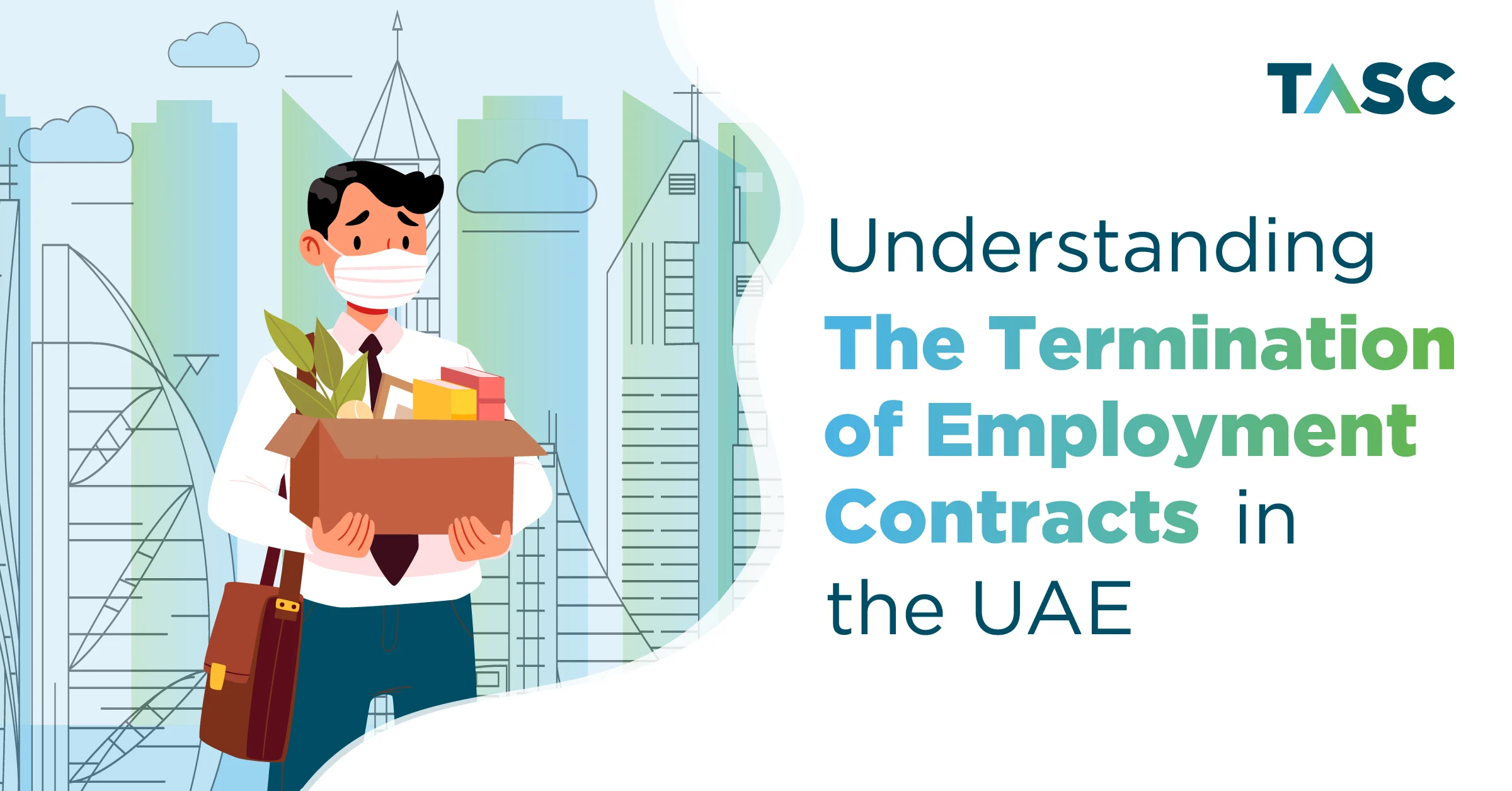
What is termination of employment in the UAE?
Termination of employment refers to the end of the employer-employee relationship, either voluntarily by the employee or involuntarily by the employer. In the UAE, employment termination can be categorized into two primary types:
- Resignation (Voluntary Termination)
- Dismissal (Involuntary Termination)
Employers and employees must understand their respective rights and obligations under UAE labor law when it comes to termination to avoid legal complications.
Key Reasons for Termination of Employment in UAE
1. Resignation by Employee
Employees can choose to resign from their position voluntarily. However, they must provide notice as per their employment contract, which is typically 30 days unless otherwise agreed upon. Failing to serve the notice period can lead to penalties, as outlined in the labor contract.
2. Dismissal by Employer
Employers may terminate an employee’s contract due to various reasons, such as poor performance, misconduct, or violation of company policies. However, it’s important that the employer follow the appropriate legal procedures to avoid potential claims of unfair dismissal.
3. Mutual Agreement
Both the employer and employee can agree to terminate the contract by mutual consent, subject to specific terms and conditions, including severance pay.
Legal Framework for Termination of Employment in UAE
1. UAE Labor Law 2025
The UAE Labor Law sets clear guidelines for both employers and employees regarding termination of employment. In 2025, there will be continued efforts to ensure that employers follow proper procedures when dismissing an employee. This includes ensuring fairness, transparency, and adherence to the contract.
2. Grounds for Dismissal
Under UAE law, dismissal can only occur for valid reasons, including:
- Serious misconduct (e.g., theft, fraud)
- Repeated poor performance despite warnings
- Violation of company policies and contracts
- Company restructuring or financial difficulties
Employers must provide adequate evidence and documentation for dismissal to avoid the risk of wrongful termination claims.
3. Severance Pay
In the case of termination by the employer, employees are entitled to severance pay as per UAE labor law. The severance pay is typically calculated based on the employee’s length of service and salary.
Employee Rights During Termination
In 2025, employees in the UAE have certain rights during the termination process:
- Notice Period: Employees must serve a notice period as specified in their contract. Employers may also terminate without notice in cases of gross misconduct.
- End-of-Service Benefits: Employees who have completed more than one year of service are entitled to end-of-service benefits, which include severance pay and any unpaid salary or leave days.
- Gratuity Pay: Employees are also entitled to gratuity pay based on the length of their service. This is calculated at 21 days of salary for each year of service for the first five years and 30 days for each additional year.
Termination by Mutual Agreement
Termination by mutual agreement occurs when both parties agree to end the employment relationship. This method is common when an employee wants to leave the company but doesn’t want to resign under terms that could affect their future employment opportunities. Employers may also use mutual termination to avoid litigation.
Important Considerations for Mutual Termination:
- Both parties agree to terms in writing.
- All severance payments and end-of-service benefits are settled before the termination date.
- No legal claims or disputes are pending after termination.
Employee Protection Against Unfair Dismissal
In 2025, UAE laws will continue to protect employees against unfair dismissal. If an employee is dismissed without proper grounds or procedure, they may file a complaint with the UAE Ministry of Human Resources and Emiratisation (MOHRE).
Employees can also request an arbitration hearing to resolve disputes. If found in favor of the employee, the employer may have to reinstate the employee, or the employee may receive compensation for the wrongful termination.
Recent Changes in Termination Laws (UAE 2025)
The UAE government continuously updates its labor laws, and in 2025, there are some important changes that both employees and employers should be aware of:
- Stronger Protections for Employees: There will be a focus on preventing arbitrary dismissals, particularly for employees who are pregnant, on maternity leave, or part of a union.
- Increased Severance Pay for Long-Term Employees: Employees with more than five years of service are likely to see increased severance packages.
- Simplified Dispute Resolution: New provisions will make it easier for employees to file complaints, seek compensation, and resolve employment-related disputes without long delays.
Conclusion: Know Your Rights and Responsibilities
Whether you’re an employer or an employee in the UAE, understanding termination of employment is essential to avoid any legal complications. With the evolving labor laws in 2025, both parties must follow the correct procedures and ensure fairness and transparency in all termination matters.
Employers should always ensure their decisions are legally justified, while employees should be aware of their rights to protect themselves from unfair dismissal. Staying informed on the latest changes in labor laws will help both employers and employees navigate the termination process smoothly. unfair dismissal. Staying informed on the latest changes in labor laws will help both employers and employees navigate the termination process smoothly.